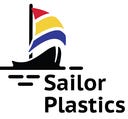Plastic bottle manufacturers address flexibility & sustainability!
Flexible packaging is the fastest-growing segment that continues to expand, these packaging materials, plastics among them have gained a reputation and most plastic bottles like LDPE and PET are often linked by manufacturers as recyclable packaging options. With the environment and sustainability ranking high among consumers and especially millennials, as the issue they highly value, when voicing their opinion when it comes to packaging their perception about plastics has to change.
The flexible and sustainable plastic packaging has seen significant growth due to its demand in end-use industries, including food, beverage, cosmetics and wellness, and pharmaceuticals. Plus, the stringent laws and regulations levied by governments as well as a shift in customer preference toward recyclable and eco-friendly packaging material.
The largest end-use sector of flexible and sustainable packaging:
Sustainable packaging is all about turning waste materials into valuable resources or returning high-quality materials into the loop after several uses. Over the past decade, plastic bottle manufacturers around the globe have enjoyed strong growth. The headline changes include, use of plastics replacing other materials and accommodate consumers’ demand for convenience. However, with the increase in usage of single-use plastic bottles and containers has resulted in a heavy burden on the environment. With this manufacturers and the management of packaging waste are facing major challenges, with regards to recyclability, which is especially true if the packaging is made from multi-materials as it can’t be recycled in existing recycling systems.
This has caused plastic bottle manufacturers to ramp up efforts on flexible and sustainable solutions. The food and beverage industry is one of the major industries that is taking significant steps to introduce regulations to drive sustainability. The primary function of the industry is to reduce food or beverage loss and increase the shelf-life of the products. For instance, manufacturers are aiming at using innovative plastic material like LDPE or PET for containers or bottles that are built from degradable and recyclable material in order to achieve flexibility and sustainability.
Increase in the demand for flexible plastic packaging during 2020–2021:
There seems an increase in the use of flexible and sustainable packaging for food, beverage, and pharmaceutical applications, during COVID-19. Consumers are resorting to panic-buying and seeking convenient food solutions due to the lack of time as well as for the fear of lockdowns. More people started to order food and beverage staples through online channels which lead to an increase in the demand for flexible packaging and an increase in expectations of food quality, hygiene, and growing environmental awareness, these factors are driving the sustainable packaging market in the food and beverage industry.
Sustainability benefits of flexible plastic packaging:
Though recycling is crucial, however, it is not a complete solution to the challenge of plastic we are facing today. That’s why ‘less plastic’ going in the first place makes faster progress at fixing the plastic system.
Flexible packaging offers many benefits to the end-user as well as the suppliers throughout the entire lifecycle of the packaging to other packaging formats including cost-efficiency, lightweight, transportation benefits due to lightweight nature, shelf-life expansion of food and beverages; and reduced materials to landfills. For instance, manufacturers will continue to manage the cost-efficiency of the packaging material and a high degree of customer convenience with innovative packaging that can be refilled, reused with easy opening, and packaging that is designed for on-the-go consumption.
Unlike, typical plastic packaging, which can waste most of the gel left at the bottom, a lightweight and flexible packaging design requires less energy to manufacture and transport while reducing the number of units consumed each year. Despite the number of benefits, the main challenges are material collection and recycling. When it comes to the usage of multi-material containers and bottles which are difficult to separate into different material substrates are hard to recycle due to lack of options.
